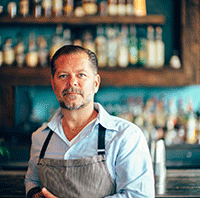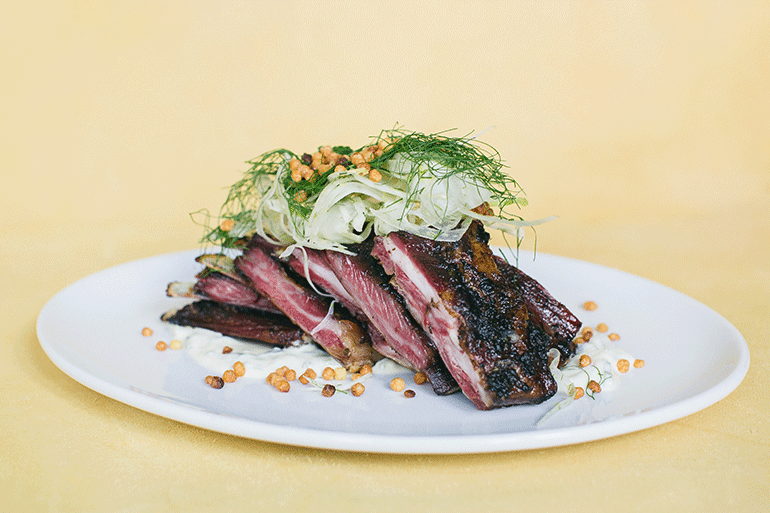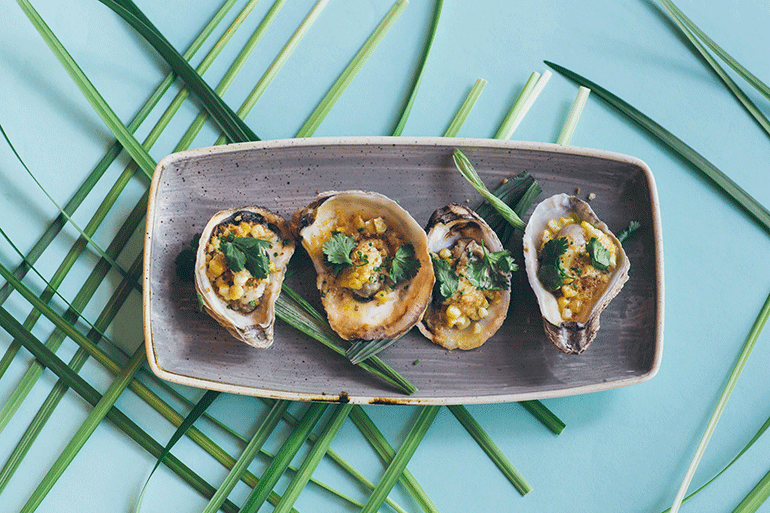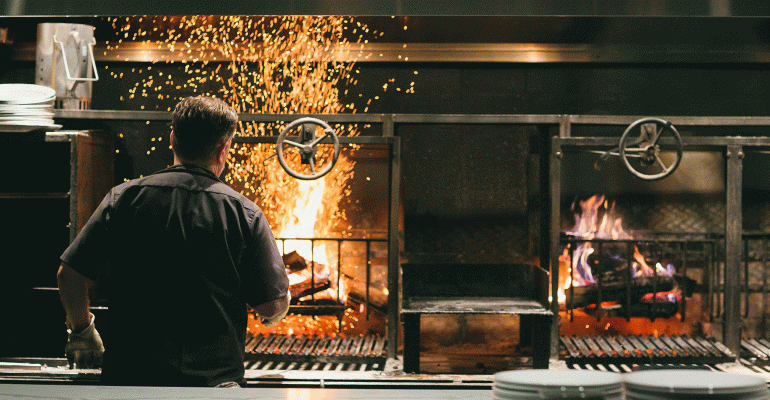 El Che Bar was a success pretty much as soon as it opened.
El Che Bar was a success pretty much as soon as it opened.
The second restaurant of Chicago chef John Manion, who also owns La Sirena Clandestina, opened in August and was up and running almost without missing a beat, he said.
“We got our groove very early on. Normally it’s this organic process that takes a minute,” but the staff meshed well from the get-go and customers have responded well to this restaurant that draws inspiration loosely from Argentina.
The kitchen is fueled by wood that heats the three flat-top griddles, or chapas, and the two big grills, but Manion sought influences outside of traditional grilled meats of the pampas to give his food the brightness and personality that Chicagoans are looking for.
“When you say, “Let’s go to an Argentine restaurant,’ I know I’m going to get the meat sweats and have empanadas that may or may not be good,” Manion said.
Besides, he’s not running a restaurant on the South American pampa, or prairie. He’s in Chicago.
“We had to give it an identity that was modern and vital and evolving. It had to be a complete thought, not just tango and red meat,” he said.

That’s not to say that South American countries aren’t melting pots just like North American ones are.
“When I lived in Brazil when I was a kid, I understood Lebanese food to be Brazilian food, because it’s street food there,” said Manion, whose father, a Ford Motor Company executive, moved him from Detroit to São Paolo when he was eight. It was only when he returned to Detroit, which also has great Middle Eastern food, that he understood the origins of what he had been eating.
So El Che Bar’s lamb ribs are now served with yogurt and a fennel salad with mint, parsley and fennel fronds.
“It’s a whole thought now,” he said of the dish.

His quail comes with Israeli couscous, compressed apricots and his take on a Yemeni-Israeli hot sauce called skhug.
“It became something I could eat every day instead of this dense, sort of heavy dish,” he said.
Customers can get a steak with chimichurri, but they can also get oysters roasted in coals and topped with seasonal enhancements (starting in August with corn and white miso).
The pork chops are thin (“I never got the heroic nature of the humongous pork chop,” Manion said) with a soy-brown sugar sauce and Coleman’s hot mustard, all topped with raw Concord grapes (halved and pitted), peanuts, cilantro and green onion.
Manion goes for brightness and boldness with his vegetables, too. His rapini is blanched, then grilled, and topped with a mojo de ajo that is made from garlic roasted in embers and mixed with lemon juice, lemon zest, Aleppo chile and olive oil.
“I don’t have to rationalize that this isn’t from the pampa, it can just be great food.”





